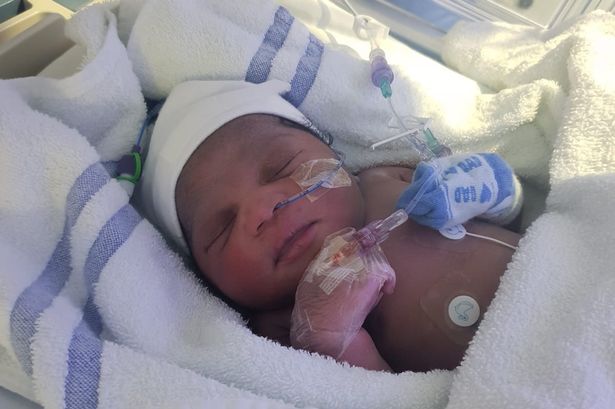The discovery of three abandoned newborns, each tragically discarded within hours of birth, has sent shockwaves through a community grappling with unanswered questions and a profound sense of concern. These heart-wrenching incidents, spanning from 2017 to the present, have become the focus of an intensive police investigation that has revealed a startling connection: DNA evidence confirms the babies are siblings, raising complex questions about the circumstances surrounding their births and abandonment. The search for the parents has intensified, fueled by a desperate plea for information and a substantial £20,000 reward offered in hopes of uncovering the truth and ensuring the safety and well-being of any other potential children. The case underscores the critical need for support systems for struggling parents and highlights the devastating consequences when these systems fail.
The first infant, a baby girl, was found abandoned in 2017, left alone and vulnerable in a public location. The discovery prompted an immediate police response and a public appeal for information, but the parents remained elusive. The second baby, also a girl, was discovered in similar circumstances the following year, further deepening the mystery surrounding these tragic abandonments. The discovery of the third infant, a boy, solidified the disturbing pattern and sparked a renewed investigation with a focus on finding a link between the cases. Advanced DNA analysis ultimately confirmed the heartbreaking truth: the three babies were indeed siblings, suggesting a recurring and desperate situation faced by the unknown parents.
The revelation of the sibling connection transformed the investigation, shifting the focus from individual incidents to a complex family dynamic shrouded in secrecy. Investigators are now working tirelessly to understand the circumstances that led to these repeated abandonments, piecing together fragments of information and exploring various possibilities. Are the parents facing extreme hardship, fearing societal judgment, or struggling with undiagnosed postpartum issues? These questions remain unanswered, but the urgency to find the parents has only intensified. Not only is there a need to understand the motivations behind their actions, but also a pressing concern for the safety and well-being of any other children they may have.
The offer of a £20,000 reward underscores the desperation of the authorities to bring closure to this tragic saga. The reward is a significant incentive, aimed at encouraging anyone with even the smallest piece of information to come forward. Police are appealing to the community, urging individuals to consider the lives at stake and the potential for preventing further tragedy. The appeal is not just for information leading to the parents’ identification, but also for anyone who might have noticed a pregnant woman who has subsequently disappeared or any unusual activity that could be connected to the case. Every lead, no matter how seemingly insignificant, is being meticulously investigated in the hope of unravelling the complex circumstances surrounding these abandonments.
Beyond the immediate investigation, the case raises broader societal questions about the availability and accessibility of support systems for struggling parents. Why did these parents feel they had no other option than to abandon their newborns? Were they aware of the resources available to them? Did they fear seeking help due to stigma or potential legal repercussions? These questions highlight the critical need for comprehensive support networks that offer compassionate and non-judgmental assistance to new parents facing challenging circumstances. Access to healthcare, affordable childcare, mental health services, and safe haven laws are all crucial elements in preventing such tragic outcomes.
The case of the abandoned siblings serves as a stark reminder of the vulnerability of newborns and the desperate situations some parents face. It highlights the importance of community vigilance and the crucial role of support systems in providing safe and healthy environments for families. As the search continues, the community and authorities remain united in their hope of finding the parents and ensuring the well-being of any other children involved. The case also underscores the need for ongoing conversations and proactive measures to prevent future tragedies and provide a safety net for families in crisis. The £20,000 reward represents not only a financial incentive but also a symbol of hope – hope that the truth will be revealed, justice will be served, and that future generations of newborns will be welcomed into a world that offers support and compassion rather than abandonment and despair.














